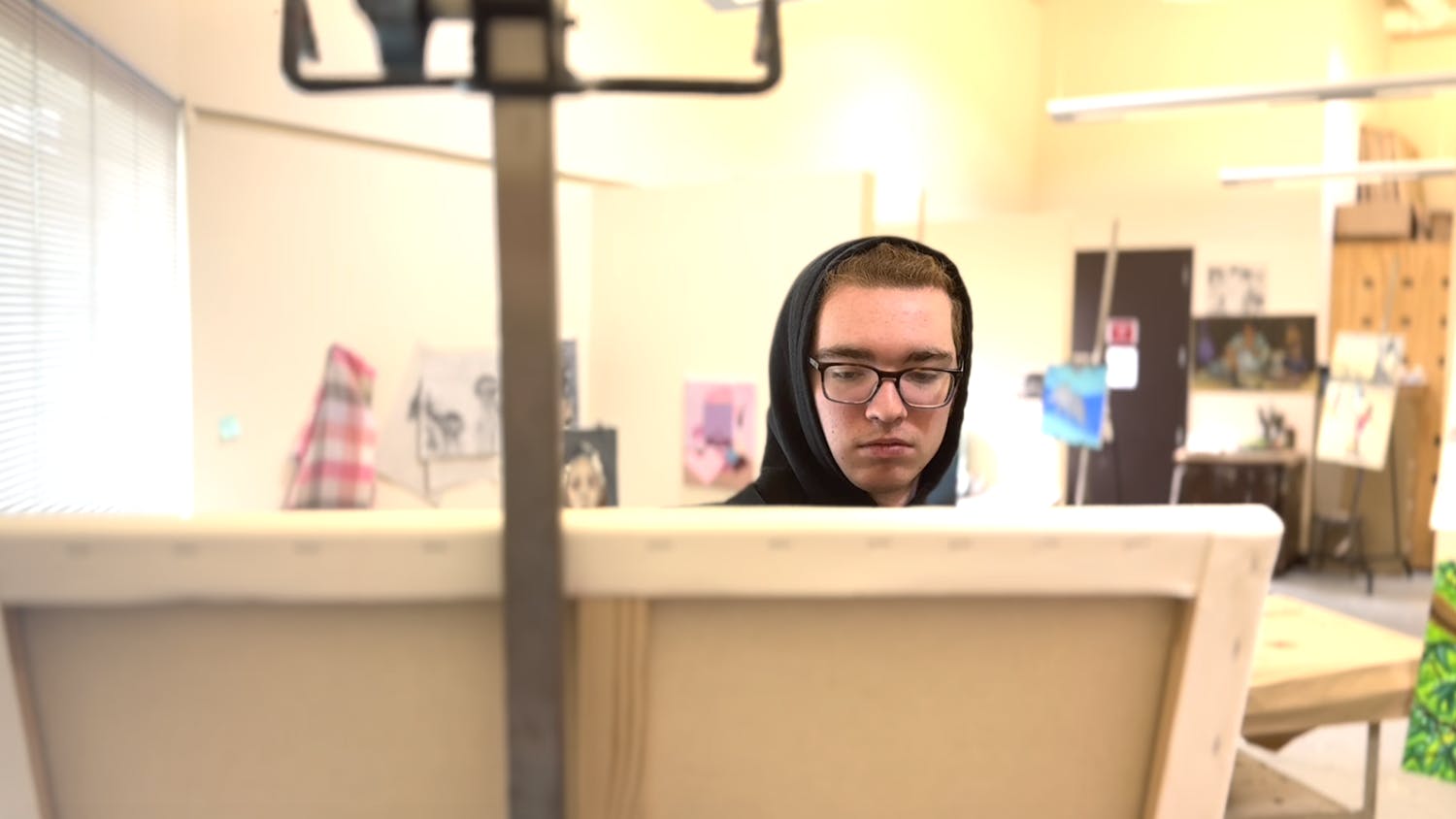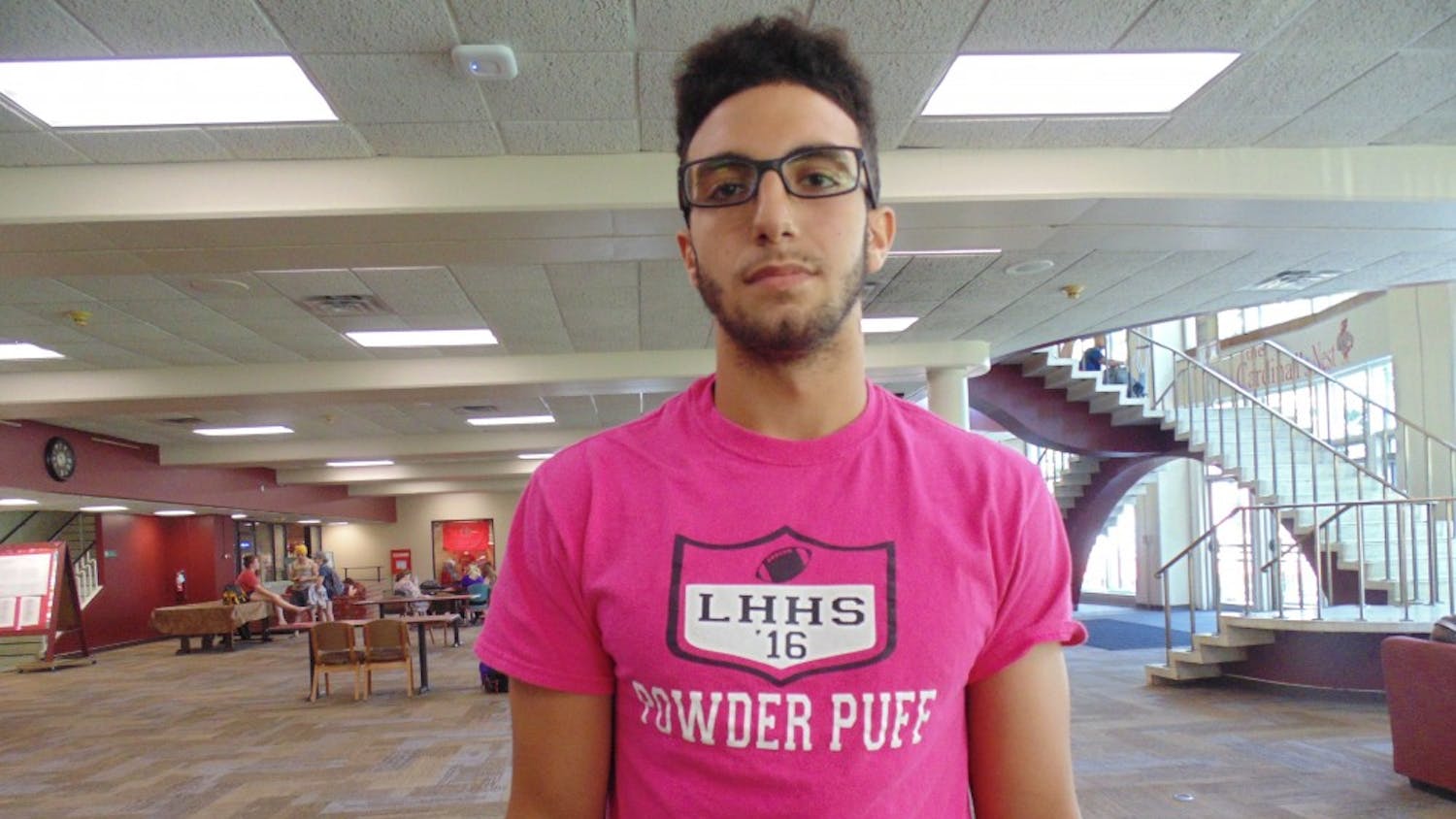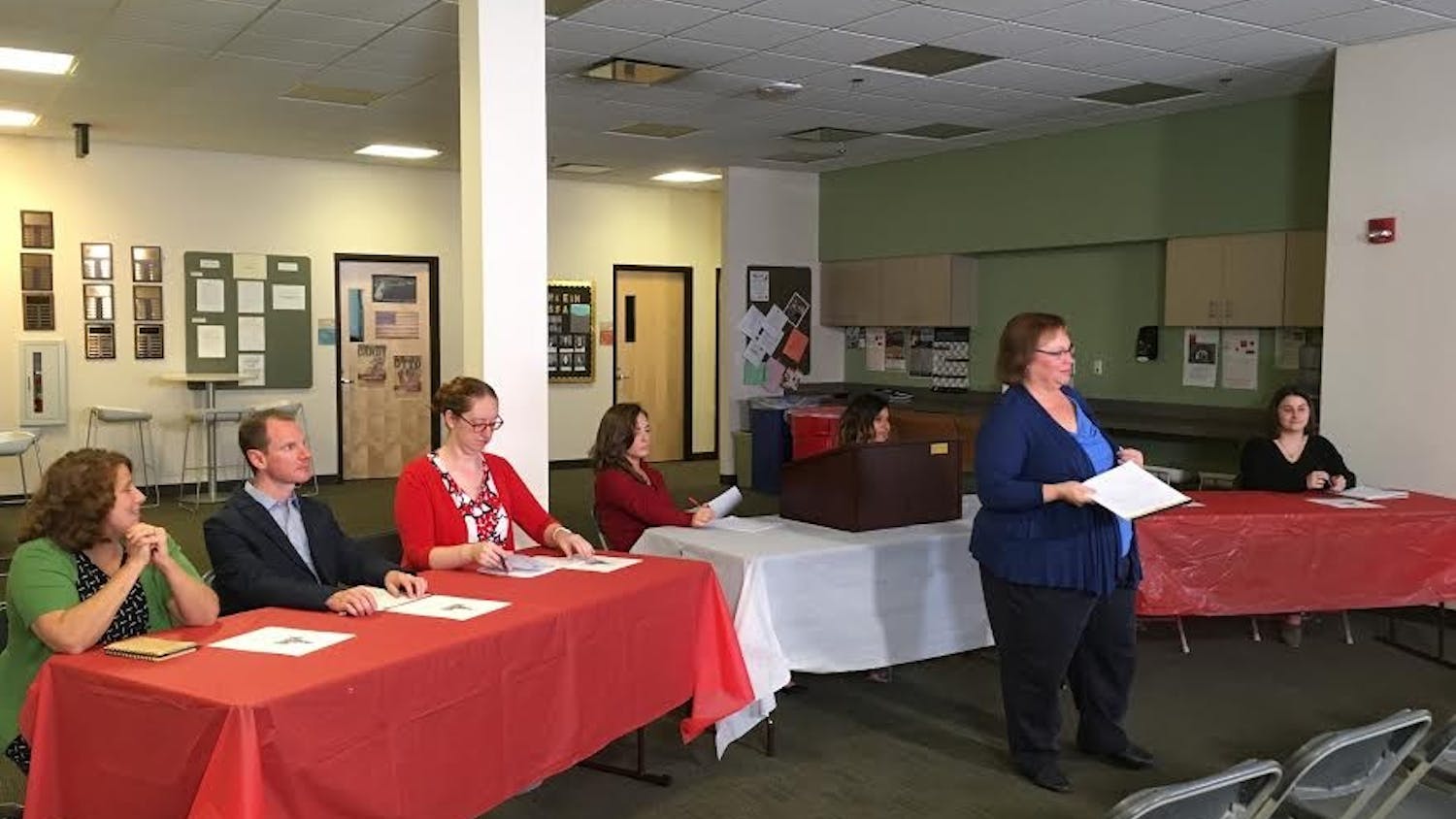The focus of rape, sexual assault and sexual abuse tends to be on women as victims and men as perpetrators. With the growing rates of male victims, many stereotypes about the issue are becoming undone, but the stereotypes leave them voiceless. Otterbein has resources to help students confront the most sensitive of subjects.
Sarah James and Maddie Holmes, team leaders of the student-run organization Team Consent, are educating students on the importance of communicating interests, questions and concerns regarding sexual activity.
“There’s not a cultural acceptance to open communication during sex,” Holmes said. “There’s not a lot of questions asked, or they're asked in really problematic, vague ways. That’s something we actually try to do in our program is to educate people on how to just have a conversation . . . how to talk about what you want and what the other person wants.”
Junior studio art major Edward Calloway said that there would be less blurred lines about consent if couples would stimulate this kind of dialogue.
The objective of Team Consent is not only to inform students about the varieties of communicating consent, but also to debunk myths and stereotypes that people often use to classify rape.
James said people don’t categorize what happens to them as rape when it doesn’t involve threats or violence, but there are different types of coercion that prevent true consent.
At the Women’s Gender Resource Center (WGRC), students should feel comfortable talking about any issues they are facing.
“It is not only for women,” James said. “It’s really intended as something for anyone on campus who is having issues or problems with anything from their sexual identity, to gender identity, to relationship violence.”
Getting men interested and involved with these topics is difficult because of a stigma against feminism, Holmes said. Feminism as a movement seeks to include men in confronting complex issues because both women and men are affected. Events like One Billion Rising have been opportunities for men to get engaged with the efforts being made on campus.
The WGRC personnel have been trained at Sexual Assault Response Network of Central Ohio (SARNCO), learning techniques of counselors and help-line representatives. Many incidents of rape go unreported because many people don’t know how, or don’t know what will happen after they make a report. The center is not mandated to report but will inform anyone of the possible options to handle the situation.
“If it’s between not saying anything to anybody and reporting it to the police, a lot of them will just choose not to say anything. So [the WGRC] is kind of a middle ground,” Holmes said. “That’s really scary when you’ve had all your control taken away and then you don’t know what’s going to happen to you after that.”
Calloway said that perceptions of a stereotypical rapist are associated with a hyper-sexualized media and its underlying rape culture. There is a tendency to think that strangers and stalkers are most often the perpetrators.
According to the Bureau of Justice Statistics, about 90 percent of rape victims knew the offender, who was usually a classmate, friend, ex-partner or acquaintance.
The stereotype that females are most often the victims of rape is partly due to ignorance on the issue, but the masculine stereotype may be keeping men from getting involved and informed.
“With masculinity, we kind of have a cultural code where men go for it and the women say yes or no,” James said.
Assigning gender roles leads to miscommunication, which is a big factor in most rapes, Holmes said.
“It seems to me that there are repercussions of males expressing their emotions,” Calloway said.
Based on masculine stereotypes, men may be perceived to be weak, sensitive or homosexual if they share how they feel or are rape victims.
There is not always going to be problems when alcohol is involved. Team Consent can inform students what situations might take place, and how to handle them.
“Otterbein has an amnesty policy officially with regards to sexual assault, where if you’ve been drinking or doing drugs, and you are worried about reporting a sexual assault because of that, [the Otterbein police] will officially not do anything to you because you were drinking on campus or anything. They’re just focused on responding to the sexual assault,” James said.







